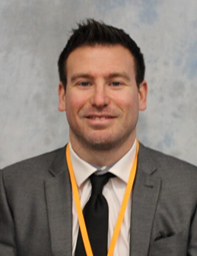PE
|
Physical Education Curriculum Intent Our vision: At Hungerhill, the PE Department nurtures excellence, respect, resilience, care, and honesty through an inclusive and broad curriculum. Our vision prepares pupils not just for sport and physical activity, but for success in society — today, tomorrow, and in their future selves. |
|
To ensure every student achieves, our PE curriculum will:
Develop the character of all students
- Students experience situations that build respect, care, honesty, and resilience, particularly through competition and problem solving activities.
- All students are encouraged to extend their experiences through Hungerhill’s extra-curricular programme.
- Social skills are strengthened through team spirit, collaboration, and peer feedback.
- Soft skills like leadership, confidence, teamwork, communication, and respect are actively promoted in our holistic pedagogy using the ‘glow’ framework’.
Ensure all students are literate and numerate
Theory lessons
- Students consistently use tier 2 subject-specific vocabulary, developing academic talk rather than every day talk.
- Revision guides and key texts are provided to support learning.
- Teachers uses formative assessment to address spelling and grammar.
- Home learning tasks focus on a DARTS approach, which is a directly after reading task. These are on senica or class charts.
KS3:
- KS3: Homework tasks focus on reading and text-based learning.
- Students engage with key texts such as rules of a game, tactical guides, or science behind exercise (e.g., effects of training on the body).
- Students complete tasks like match analysis, evaluation reports, and reflections, often using key text and scaffolds to improve structure.
- Numeracy is embedded through scoring, measurement, and health-based calculations.
- Lessons always display key content and terminology to support literacy.
Build knowledge and aspirations of all students
- PE knowledge is divided into substantive (factual) and disciplinary (how knowledge is developed).
- Declarative knowledge: Understanding facts about movement, e.g., short-term effects of exercise, techniques in sport.
- Procedural knowledge: Applying practical skills, e.g., performing a tennis serve or a gymnastics roll.
- Disciplinary knowledge: Learning through play, experimentation, and observation, e.g., developing tactics in rugby through adapted practices such as TGFU model.
Ensure all students have the secure foundations to progress into further education and employment
At Hungerhill, we ensure all students have the knowledge and skills to lead active, healthy lives and make informed career choices through three pillars:
- Motor Competence: Mastering and linking fundamental movement skills specific to various sports.
- Rules, Strategies, and Tactics: Applying sport-specific conventions with understanding and skill.
- Healthy Participation: Understanding exercise benefits, participation methods, and health impacts, preparing students for careers in health science and for lifelong fitness.
In addition, our accredited qualifications has a GCSE and vocational pathway, allowing students to make informed choices for their further education pathway. Many students progress to FE to study A level PE or a vocational Level 3 extended Diploma in Sport.
Develop cultural capital of all students
- We offer a wide range of trips and visits each term, providing students with cultural and sporting experiences both in the UK and abroad.
- ‘Discovery’ lessons introduce students to global sports like Tchoukball, American Football, and Dodgeball, focusing on cultural understanding rather than performance.
Our extra-curricular provision will:
- Ensures every student has access to inclusive and enriching activities.
- Expands experiences in teamwork, respect, and excellence.
- Builds strong links to community clubs and sporting agencies.


